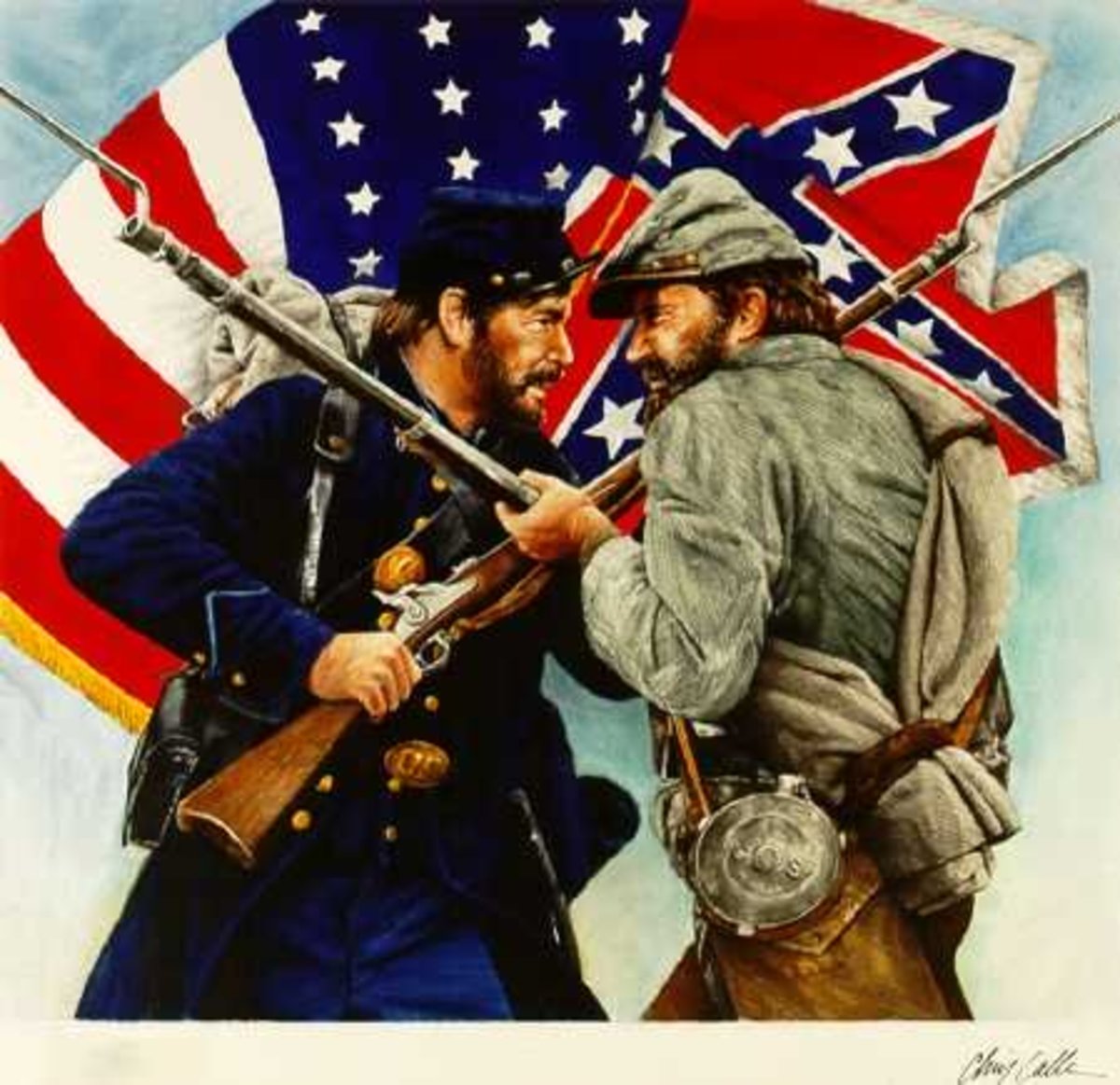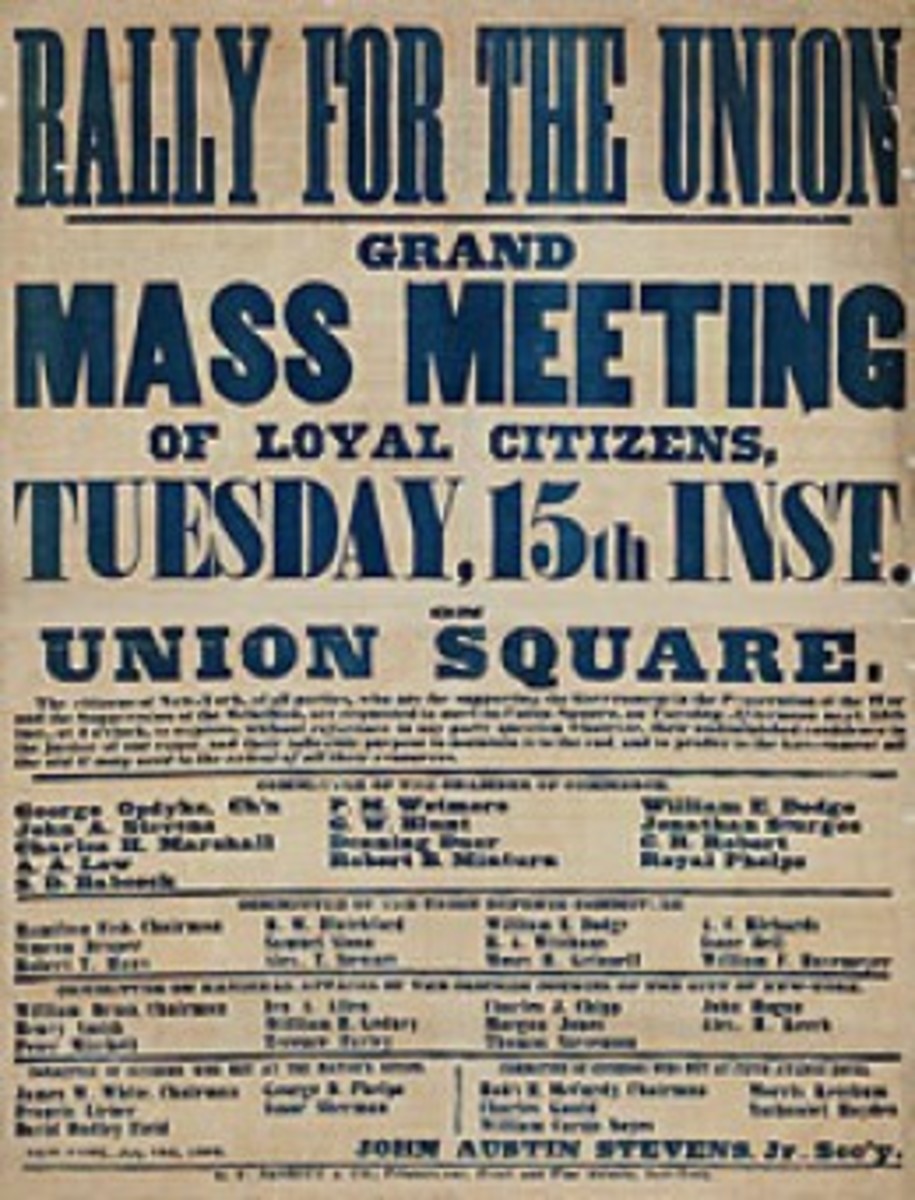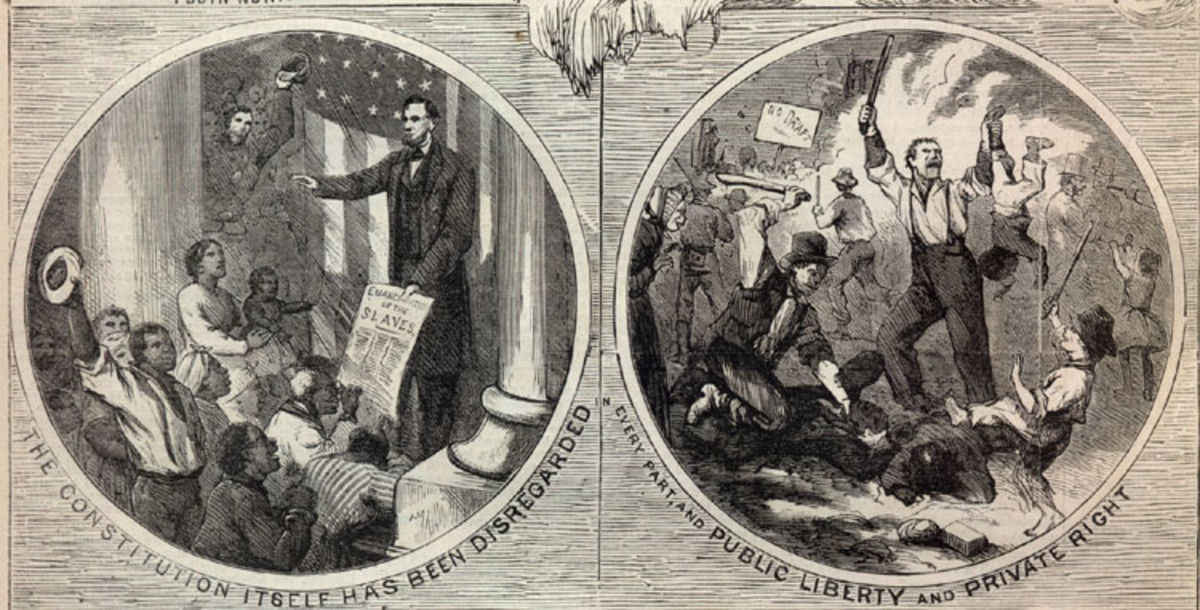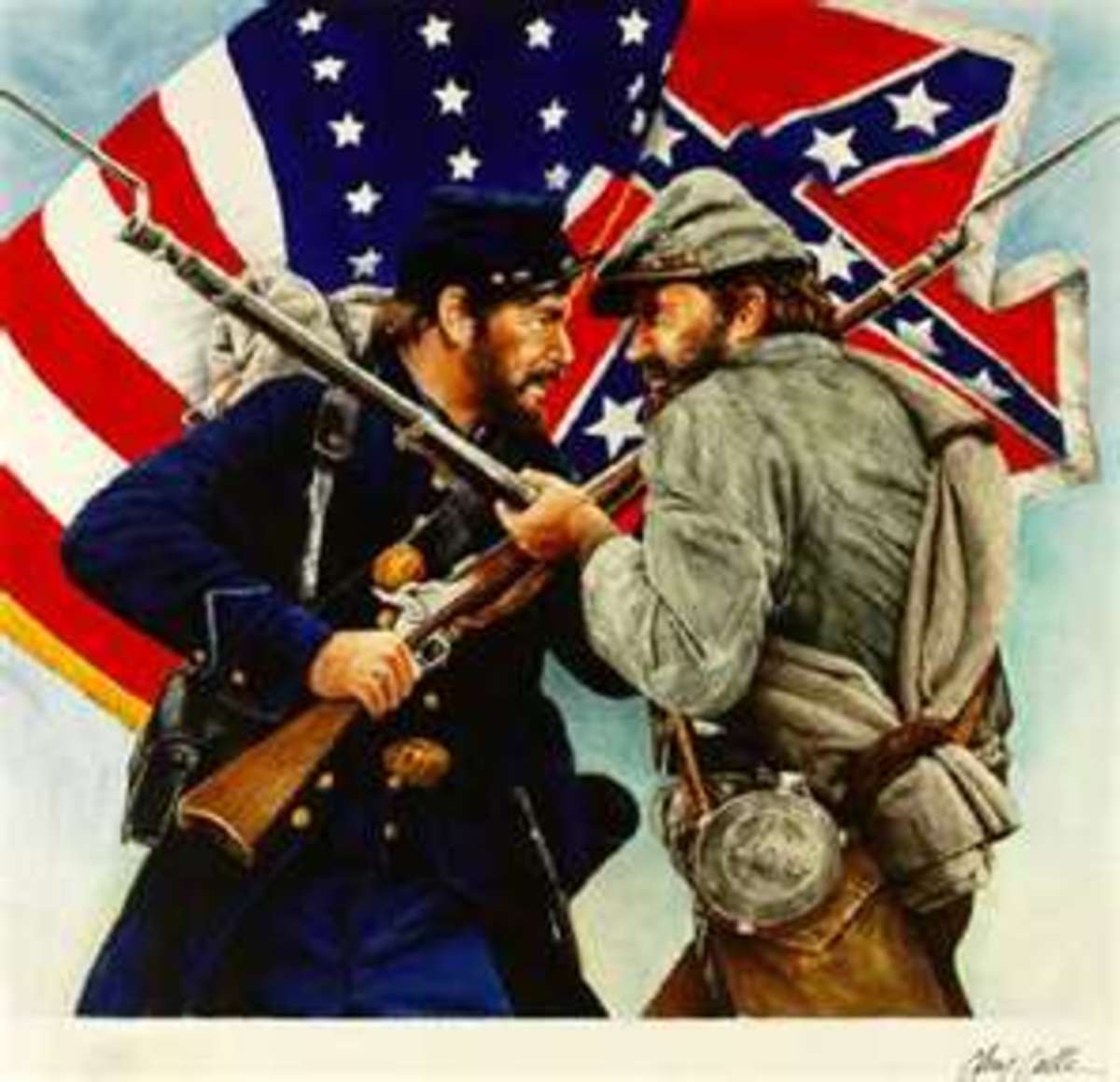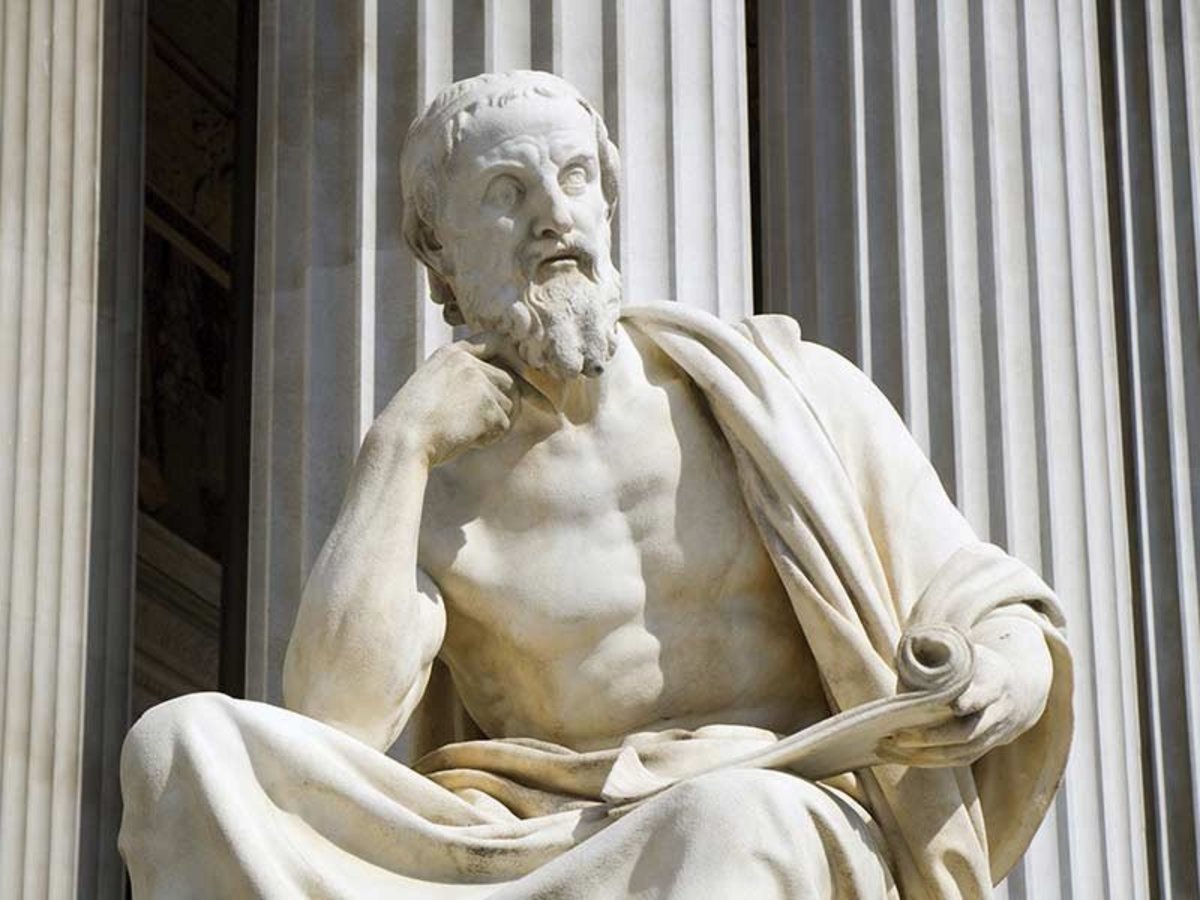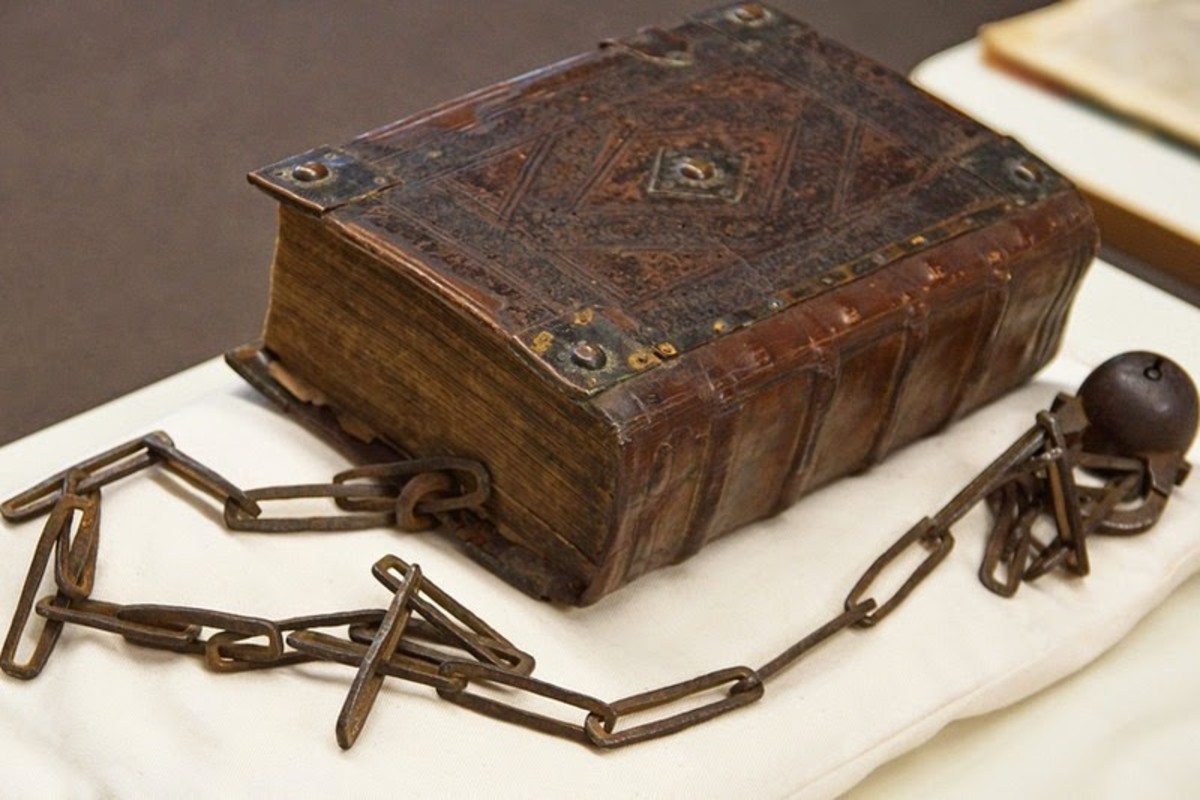The American Education System: Part One: The Civil War Legacy: A Speculative Essay

I want to talk about the US education system. But I want to do so in the broadest possible way, to include American public intellectual culture in general. In other worlds, our discussion will not be confined within the walls of the school house or university. I want to begin in an unusual way. If you're ready, we'll get started.
The American Civil War of the 1860s, is not very well understood, especially by people who think they understand it well. However, I think its fair to say that the scholarly consensus is that the issue of slavery and the expansion of slavery, was the driving force behind Southern succession. That would make the North, the antislavery opponents of the South. We are given to understand that Lincoln the North were for the preservation of the Union; and Jefferson Davis and the South were traitors to the Union, rebels.
This scenario gives us a good guy-bad guy narrative of history, which must be rejected by fair-minded people in this day and age.
We are given to understand that the American Civil War was the vital test for the very idea of democracy. You can't have a democracy, if one side is going to pick up their marbles and go home every time they lose a vote; this way leads to endless political-geographical fragmentation. The victory of the North is seen, by this analysis, as the ultimate victory for democracy.
But one thing we know that complicates that analysis, is the fact that the Democrats (then the pro-slavery party) and Southerners were making the argument that it had been precisely the institution of slavery that had made democracy possible in America.
Legal scholar Paul Finkelman wrote: "[B]y the eve of the Civil War some Southerners claimed that democracy in America was only possible because of slavery... Southerners of various social classes argued for the racial inferiority of blacks and relegated them to a permanently diminished status, thus simultaneously justifying slavery and allowing for greater democracy among whites. Because they were slaves, so the argument went, blacks could never participate in politics. Instead, they provided what Senator James Henry Hammond called a 'mud sill,' on top of which a democracy of white men could be built. Thus, the rights of life, liberty, and happiness proclaimed in the Declaration of Independence could be universally applied to white Americans precisely because they were not applied to blacks" (1).
This formulation sees democracy as a finite resource. It's a weird notion at first blush, until you realize that the ultimate goal of politics and governing, in theory, is the increase or at least preservation of the material prosperity of the population; and if you can bring yourself to see the American Constitution as a fundamentally economic document (2).
Furthermore, this formulation sees democracy as a finite resource, of which there is not enough to go around, to include liberated blacks in its benefits.
One of the things that is not well understood about the American Civil War is the nature of the Republican party and the abolitionist sentiment.
Yes, the Democratic party, at that time, was the Southern, pro-slavery party.
Yes, the Republican party, at that time, was the Northern, anti-slavery or abolitionist party.
But no, the abolitionist energy was not largely concerned with the liberations of blacks, so that they might be made equal citizens of the United States.
What needs to be understood is that the North, the Republican party, and abolitionist sentiment, by and large, wholeheartedly agreed that there was not enough democracy to go around to include liberated blacks in its benefits. Abolitionist energy, by and large, was about liberating blacks from slavery, so that they could either be mass deported out of the country or segregated within it.
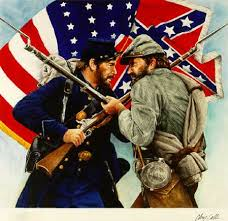
In 1768, a contributor to a Philadelphia newspaper denounced black slavery yet went on to propose a 'Negro colony,' somewhere in the British empire, but outside of North America. Thomas Jefferson opined that when the black population was freed, they were 'to be removed beyond the reach of mixture,' so that they would not stain 'the blood of his master' (3).
A New Hampshire author opined that 'if the Negroes should remain among us, though fully franchised, they will not be treated upon terms of equality; and perhaps never rise to the rank which they deserve. Let them go, therefore, be formed into a state, and, in due time, have a voice in Congress. They will never be men, till they are treated like men; they will never be citizens till they feel themselves so' (4).
Writing in 1968, historian Winthrop D. Jordan observed: "What was striking in this proposal was that fervent equalitarianism led directly to Negro removal" (5). In other words, again, there was not enough of the finite resource of democracy to go around, to include liberated blacks in its benefits.
Winthrop D. Jordan made the point that, while Northern antislavery advocates tended to treat some of the deportation schemes as somewhat fanciful, no one thought of colonization as a proslavery institution. Nobody saw any great evil in it. Dr. Jordan identified one Thomas Branagan as one of the most prolific antislavery writers, who, nevertheless, was appalled at the very thought of allowing emancipated blacks to stay in the United States. Branagan proposed, in 1805, the establishment of a separate black state, somewhere in the Louisiana territory, where, he noted, the blacks would be a nice and comfortable two thousand miles away (6).
In 1788, one William Thornton was encouraging some free blacks in Rhode Island and Boston in their efforts to immigrate to Africa. Winthrop D. Jordan: "Thornton seems to have felt that the animosities generated by slavery made colonization desirable... he depended on mutual repugnance to prevent widespread intermixture, yet he was by no means prepared to abandon the customary double sexual-racial standard: 'If the taste of a white man should be so depraved as to prefer a black to a white they ought to be joined' in marriage he wrote, 'it would be injustice to permit such depravity to contaminate a white woman' (7). And so we have that old concern of miscegenation and maintaining the "purity" of white women.
St. George Tucker of Virginia wrote a book: A Dissertation on Slavery: With a Proposal for the Gradual Abolition of It, in the State of Virginia. Professor Jordan gives us a sense of what that book is about: "A general simultaneous emancipation was not to be countenanced. The habits of slavery had rendered Negroes unfit for freedom and white men incapable of treating freedmen as equals. Wholesale expulsion would be cruel and impractical, while permitting to remain as freedmen would be throwing"---quoting Tucker---'so many of the human race upon the earth without the means of subsistence' (8).
St. George Tucker: 'Though I am opposed to the banishment of the Negroes, I wish not to encourage their future residence among us. By denying them the most valuable privileges which civil government affords, I wish to render it their inclination and their interest to seek those privileges in some other climate.' Perhaps the dominions of Spanish Louisiana and the Floridas, Tucker supposed (9).
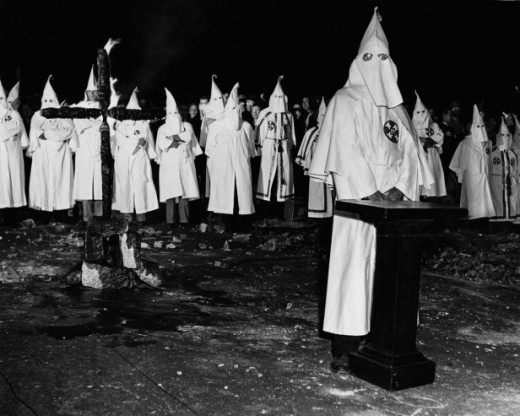
Here's what I'm saying.
1. The American Civil War of the 1860s is not well understood by anybody.
2. Both North and South believed that democracy was a finite resource, which could not be shared with a liberated black population.
3. Both sides believed that withholding democracy from blacks meant greater democratic freedom for white men.
4. Therefore, as a consequence, both sides were committed to white supremacy.
5. Abolitionist energy was, for the most part, directed at "Negro removal" or segregation, NOT inclusion in American life.
Question: Having said all of that, what was the Civil War even about? Why did North and South go to war? Why couldn't the North have simply left the South to their own devices, given them their "state's rights" to pursue "race relations" as they saw fit?
Answer: The Civil War was about slavery, as far as I can tell. Its just that the North wasn't particularly morally outraged by slavery, per se. The issue with slavery, for the North, seems to have been that the practice was a practical impediment to something.
Question: A practical impediment to what?
We get a clue from the way the eight-decade aftermath of the Civil War played out. What, in fact, actually happened was that President Abraham Lincoln issued the Emancipation Proclamation in 1863, which formally ended slavery in the United States. But slavery on an informal---but no less brutal---basis was allowed to continue for another eighty years until World War Two (10). But this time, that forced labor was put to work in order to build up the industrial sector of the South to match that of the North (11).
Economic historian Kevin Phillips correctly identified---in my opinion---the two driving forces of the American Civil War of the 1860s. One was the North's critique that the South's reliance on black slave labor was blocking opportunities for free white labor (12). The other thing to understand is that the South's continued reliance on slavery was actually delaying the industrial modernization of the country as a whole. Mr. Phillips, again, pointed out that the eleven states that seceded from the Union lagged behind the North in any category you want to name, just about: manufacturing, bank deposits, schools, railroads, urban planning, etc. Despite this, the South just about matched the North in wealth. The four million slaves were valued at between two and four---with a 'b'---dollars. Kevin Phillips says that the South's defeat, perhaps, made the process of industrial modernization, more "wrenchingly abrupt," for them than it would have been otherwise, without the war (13).
What we can infer is that the South's healthy bottom line had engendered a complacency in the minds of the Southern ruling class, about the state of the industrial infrastructure. Why bother about technological innovation, when you have armies of unpaid labor to do all the work?
Incidentally, this slave-labor-driven technological complacency is nothing new in human history. Historically, this dynamic appears to be quite routine and understandable, if not exactly logical. Historian Chris Harman talks about human civilization thousands and thousands of years ago, but a few thousand years into the transition from a primarily hunter-gatherer way of life to one based on agriculture.
Chris Harman: "The ever-greater absorption of resources by the ruling class was accompanied by a massive slowdown in the growth of humanity's ability to control and understand the natural world" (14).
Why?
Because...
Chris Harman again: "That section of society which had been freed from daily toil in the fields no longer had any interest in furthering humanity's control over nature" (15).
There was, in fact, a wonderful modern example of this in the movie, Be Cool. John Travolta plays Mafia loan shark-turned-movie producer, Chili Palmer. He and Danny DeVito's characters are talking about cars. Danny DeVito's character says, "... what about speed?" Chili Palmer (Travolta) says: 'If you're important, people will wait.'
The message is clear: If you have enough power over other people, you don't have to be technologically up-to-date. You can take a horse and buggy to the meeting if you want to and people will just have to grin and bear it.
Conclusion
There is just one more thing to settle before we close part one. Some people say that the American Civil War was not about slavery. This issue came up in the movie, Jonah Hex starring Josh Brolin in the title role. The movie is a post-Civil War-set supernatural thriller. Jonah Hex is a former Confederate soldier on a "mission of revenge" and all that.
There is a scene in which Hex is talking to a black friend of his, a shop owner of some kind. The man is telling Hex what a fundamentally decent human being he is. At one point, the man says to Hex, "... We both know that you never believed in slavery. You just didn't like some government telling you what to do."
With that statement, once again, we have the invocation of "rugged individualism" and "state's rights." Anyway, people who say that the American Civil War was not about slavery, point to the composition of the Confederate military forces as proof of this. They point out how most of the soldiers did not own a single slave. Therefore, the logic goes, they could not have been fighting for something that they had no personal stake in.
A historian called James M. McPherson, a Civil War specialist, would counter that argument by saying that it was precisely those workaday, non-slave-owning, whites of humble means, who would have seen themselves as having had the most to lose, if slavery was overturned. First of all, he says, if you didn't own slaves, you probably aspired to; slave-owning, plantation splendor would have been your vision of the good life, your "American Dream" at that time (16).
Secondly, and far more importantly, Dr. McPherson would have us understand that slavery had created a world in which even the most hardscrabble white person knew that he was the social better of all blacks and Indians, and anyone else in the world who could not be considered "white" Western European. If slavery were overturned, he would go back to being a nobody again. This fate would not befall the big planters because they were wealthy (17).
By the way, this is not a fate that would befall Northern Republican industrialists, because they were wealthy. It was the workaday, non-slave-owning, white Northern soldier of humble means, who had the most to gain from the overturn of slavery, since it was about opening opportunities for free white labor. Their futures were on the line in a way that was not even remotely the case for the kind of people who made their income from the capital gains and dividends from stocks and bonds.
At the end of the day, I think, the American Civil War was about opening up economic opportunities for free white labor and dragging the South, kicking and screaming, into the modern industrial age. The Rural Electrification Act (1936) can be seen as a kind of capstone to this effort. This legislation provided for hooking up the South with electricity, so that the region could join the North and the rest of the industrialized world in the twentieth century.
You know, given what we have been talking about, it could very well be that the South was only ready for electricity in 1936. Maybe the region was not ready to be hooked up in 1900, 1910, 1920, or 1930. If that is indeed the case---and I see no reason why it would not be---then it is a striking indicator of just to what a primitive state the South had fallen relative to the North, and to the rest of the modern industrial world.
What we are going to look at is this: Has it been the case that the North and South's shared commitment to white supremacy had any consequences for American intellectual culture in general and the school house educational system specifically?
Thank you for reading!
Part Two
References
1. The Centrality of Slavery in American Legal Development. (1997). In P. Finkelman (Ed.), Slavery and the Law(p.4). New York: Madison House.
2. Beard, Charles A. An Economic Interpretation of the Constitution of the United States (With a new introduction by Forrest McDonald). The Free Press, 1986. (paperback).
3. Jordan, Winthrop D. White Over Black: American Attitudes Toward the Negro 1550-1812. University of North Carolina Press, 1968. 544
4. ibid, 548
5. ibid
6. ibid, 548-549
7. ibid, 550
8. ibid, 555
9. ibid
10. Chomsky, Noam. Hopes and Prospects. Haymarket Books, 2010. 79
Noam Chomsky: "[S]lavery did not end with the Civil War, despite the Constitutional Amendment that prohibited it in principle. The war was followed by a decade of partial freedom for African Americans, but by 1877, with the end of Reconstruction, slavery was reconstituted in a new and even more sadistic form, as Black life was effectively criminalized and sentencing was rendered permanent by various means, while brutalizing prison labor provided a large part of the basis not only for agricultural production, but also for the American industrial revolution of the late nineteenth and early twentieth centuries... These horrifying practices continued until World War II, when free Black labor was needed, and in the postwar boom there was a window of opportunity for the Black population."
11. Blackmon, Douglas A. Slavery by Another Name: The Re-Enslavement of Black Americans from the Civil War to World War II. Doubleday, 2008.
12. Phillips, Kevin. Wealth and Democracy: A Political History of the American Rich. Broadway Books, 2002. 30
13. ibid, 31-32
14. Harman, Chris. A People's History of the World: From the Stone Age to the New Millennium. Verso, 2008. 33
15. ibid, 34
16. This Mighty Scourge, Perspectives on the Civil War, Part 1 [YouTube video]. (2009). United States. Go to the 40:22 mark---James M. McPherson responds to a question concerning the matter of non-slave-holding white participation in the Confederate military forces.
17. ibid

